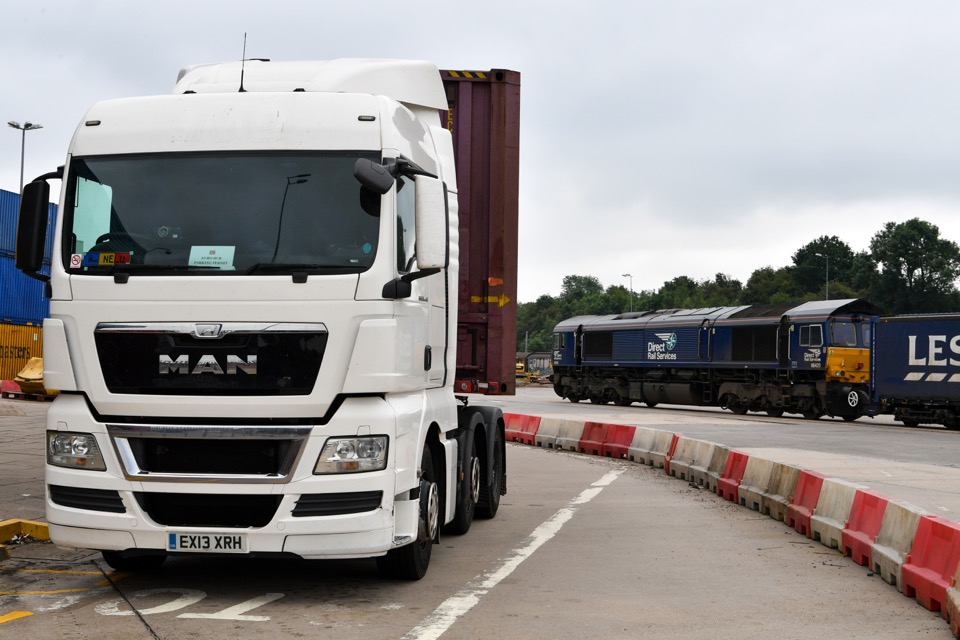Rail freight industry not happy about longer lorries on UK roads

The UK government has announced that longer lorries will be allowed on UK roads from 31 May 2023. This decision will allow trailers on the road that are measuring two metres longer than traditional trailers. The rail freight industry has criticised the decision, stating that the move will make road transport more competitive, whereas rail freight offers a more environmentally friendly alternative.
There has been no word from the government on the potential harm to the growing rail freight sector, especially in the fledgling express logistics sector. Despite fears of road safety, the government has estimated that the introduction of longer trailers will save 70,000 tonnes of carbon dioxide, and is pushing through the legislation by the end of this month.
Stealing off the plate from rail freight
The prospect of longer lorries on the UK roads is not an overnight change. The move follows an 11-year safety trial, and the government estimates that the use of longer lorries will result in marginally fewer journeys, reducing road congestion. That is a claim that most commercial managers in the sector would likely refute, since they would clearly seek to maximise any return on investment in new trailers. Union sources, particularly those representing the rail freight sector, have criticised the decision, arguing that rail freight is a more environmentally friendly option and has been ignored by legislation.

The longer lorries will however be subject to an existing 44-tonne weight limit. Operators will be expected to put extra safety checks and training in place. Rather surprisingly, the government said that the trial demonstrated that LSTs were involved in around 61 per cent fewer personal injury collisions than conventional lorries. They add that they expect the trailers to transport fast-moving consumer goods and retail products, waste packaging, parcels, and pallets, and that the lorries will be used by brands such as Royal Mail, Argos, Stobart, and Morrisons. If that seems like stealing the dinner off the plate of rail freight – it is.
Express logistics most at threat
Taking a break from defending strike action in the long running dispute, the union RMT has expressed disappointment with the decision. It has warned that the move will increase the number of fatal road accidents and has slammed the government over plans to permit longer lorries to travel on UK roads despite the climate emergency. RMT general secretary Mick Lynch said that the government had made the announcement on longer lorries despite the fact that the climate emergency was accelerating and what his union has called the managed decline of the rail industry including the freight sector.
Around 3,000 LSTs are already on the UK roads, but from May 31, any business in England, Scotland, or Wales will be able to use them. The government has already speculated that fast-moving consumer goods will be the most likely loads for the new standard trailers. With the existing weight limit unchanged, there seems little threat to the bulk loads portfolio of rail freight. Long distance intermodal traffic would not appear to be at threat either, but the less than container load and palletised traffic – upon which the growing express logistics sector relies – is watching with some concern.
You just read one of our premium articles free of charge
Want full access? Take advantage of our exclusive offer





